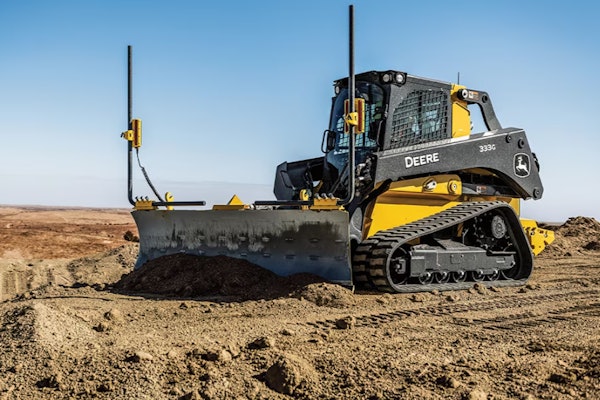This web exclusive content is part of Equipment World’s special report —
Attracting the people you need.
Ten tips for finding a good school
1. Accreditation
Any training institution can say it is accredited but you need to know who the accrediting agency is and if that agency is recognized by the U.S. Department of Education. In the United States the government recognizes about 18 regional and national accrediting organizations for higher education institutions. While standards vary from organization to organization, without recognition from the Council for Higher Education Accreditation or the United States Department of Education, the claims made by independent accrediting groups hold no value in the academic community. A school’s accreditation determines if credits are transferable, the requirements instructors meet and what types of financial aid a student can receive. If you intend to use federally backed loans or grants to fund your training, the school must be accredited by an agency recognized by the U.S. Secretary of Education. This website will give you that information: www.ed.gov/admins/finaid/accred/index.html. If traditional college credits are part of your goal, search for postsecondary accrediting associations here: www.accsct.org/Content/Accreditation/Links/Links.asp.
2. Credentials
Find out what ‘pedigree’ you will earn by completing your training – a degree, certificate, diploma, work card, continuing education credit, license, etc. Are the credentials recognized by the Department of Education, a union, the construction industry in general, or a particular manufacturer or employer? Will you be able to build on those credentials with future training?
3. Costs
Determine the costs for tuition, materials and financial assistance before signing a contract. Get written details on cancellation and refund policies. Ask if you will be covered by the school’s insurance if you are hurt while training and what procedures they follow. If you are applying for an apprenticeship during which you will earn an income, ask how you will be compensated if there are no projects to train on. What benefits does the apprenticeship offer? If your training is sponsored by a state agency, find out what your financial obligations are to the training facility.
4. Instructors
What are the instructor’s qualifications? What is the teacher-to-student ratio and the teacher turnover rate? Does the instructor represent a manufacturer or trade association, and if so will you get a well-rounded presentation of the skill being taught or be limited to learning only one manufacturer’s machines or association’s business perspective?
5. Rates of completion
Ask for the school’s rates of completion and compare the rates of public and for-profit schools. How long does the average student attend? Can you take a break between courses without losing seniority or costing more money?
6. Financial aid
Know the requirements for and terms of the financial aid program. Get the facts about the institution backing loans, grants, or on-the-job programs; how and when funds are dispersed; and how loans are repaid. For-profit schools may not be eligible for government-backed financial aid or GI-Bill benefits. If the school offers its own financing, find out what company backs the loans and how interest rates are determined. If you have a late payment, will the interest rate spike? Will the in-house loan be considered a credit-card type debt and affect your credit score? Be wary of financial assistance programs that guarantee you will get an education loan. Some private financial aid programs require a co-signer, exceptionally high interest rates and even suggest securing a home-equity loan to fund training. Don’t be pressured into a loan you do not understand.
7. Facilities
Get the physical address of the school’s training grounds and equipment facilities. Visit and inspect the facilities to determine if they are the same as described in the school’s online and printed materials. Is the equipment current?
8. Endorsements and referrals
If the school’s website or printed material has an industry association’s name or logo on it, call the association to ask if the school works with the association’s training and education program, and if the association recommends the school’s training. Being a member of an association does not mean the association supports the school’s programs.
9. Job placement
Be wary if a school guarantees you job placement or makes promises about how much money you will make. An accredited school recognized by the U.S. Department of Education cannot legally make such guarantees. They can, however, provide you with written statistics on past graduates, their jobs and their employers. Does the school keep a database of graduates? How long is the list active? Does the school proactively market its services and graduates to the community and construction industry?
10. Reputation
Contact the Better Business Bureau for a reliability report on the school at us.bbb.org. Go to www.accsct.org to check if a career school is on probation or has applied for accreditation with the Accrediting Commission of Career Schools and Colleges of Technology.
Other articles in this special report:
Cover Story/Special Report: Attracting the people you need
Web exclusive–Special Report: Attracting the people you need/Training
Web exclusive–Special Report: Attracting the people you need/Demographics









